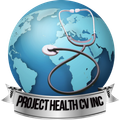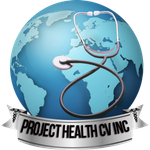About Us
Who We Are
Project Health CV Inc. is a non-profit organization founded in 2009 by medical staff from Beth Israel Deaconess Medical Center. The mission’s purpose is to provide medical as well as specialized surgical services in Cape Verde.
PHCV Inc. is dedicated to improving lives by introducing world class medical care to the people of Cape Verde and providing those in need access to general and preventative healthcare information.
Our Mission
Our mission is to continue the training of health care providers and transporting necessary medical equipment to Cape Verde. The aforementioned meetings were valuable in that the health/hospital administrators were very informative in terms of communicating the medical needs of the people in Cape Verde.
Amongst the most urgent needs were: blanket warmers, incubators, recovery room/intensive care unit services, a trauma program, emergency medicine training, pediatric care, oncology, vascular and most importantly, biomed engineering.
Though our needs are great, with continued support we will persevere.
Procedures
Through generous donations, PHCV was able to send over $100,000 worth of medical equipment and upon arrival, the team immediately began training physicians, and ancillary personnel, by way of observation, to utilize the machines in Cape Verde. They also performed lesser invasive urological procedures in one of the largest hospitals in Cape Verde.
Board of Directors
President
- Michael Kearney, MD
Vice President
- Roger Lefevre, MD
Strategic Planning Director
- Carla Mello
Executive Director
- Ernestina DaMoura-Moreira
Founders
- Luis DaCosta
- Alphonso Brown, MD
- Bubakar Balde
- Maria L. DaSilva
- Michael Kearny, MD
- Ernestina DaMoura-Moreira
- Joao M. Tavares, MD
- Carla Melo
- Eurizandra Pinto
Director Of Operations
- Elizabeth D. Moreira, MHA
Executive Advisors
- Peter Chang, MD
- Micheal Sweeney, MD
- Gil Freitas, MD
- Joao M. Tavares, MD
- Amos Adelowe, MD
- Stephen Odom, MD
- Ines Carbral-Goncalves
- Michael Fine, MD
- Nicholas Tawa, MD
- Vanessa Britto, MD
- Galen Anderson, MD
- Eva Luo, MD MBA
- John Camara
Multi-Media
- Stanley Bois, Hotinri
- Carla Melo
- Eurizandra Pinto
- Victor A. Moreria
- Josephine Duarte
- Daniel Paczuski
Accountants
- Ghislain Joseph
- Maria A. Moreira
Executive Assistant
- Eurizandra Pinto
Senior Advisors
- Spencer Demelo, CPA, MSB, MBA
- Dr. Jose Tomas Veiga
- Dr. Manuela Monteiro
- Dr. Jose Emanuel Moreira
- Dr. Carlos Reis
- Alexia Kearney
- Chitra R. Lefevre
- Elsa Tavares
- Teresa Paczuska
- Adam Paczuski
- Karen Lepore-Pellicano Esq
- Joanne Stephens
- Maria DePina
Administrative / Research
- Aracely Adelina Alicea
PHCV In Action
Here you can view some of our special projects, letters from physicians, videos detailing some of our missions, and check out Project Health Cape Verde in the news!
Meìdicos especialistas em urologia vindos dos Estad
A video of Urology Specialists from the United States
A Letter From Dr. Nakul Raykar
BIDMC is no stranger to Cape Verde, as a group of physicians, surgeons and translators have been making trips to provide care for the past few years. In fact, later this month, a group of BIDMC physicians and translators will travel to Cape Verde for another medical mission trip.
For me, however, this trip was my first. We were mainly based in the capital city of Praia and worked at Augustinho Neto Hospital (ANH), which serves as one of the two tertiary hospitals in the country. One of the reasons for this trip was to research, explore and build the foundation for future visits. Ernestina Damoura-Moreira, BIDMC Interpreter Services, accompanied us, as did Dr. Odom’s wife, Alexandra, who is a librarian by training and was vital to our research and data collection efforts.
We were focused on conducting an initial baseline assessment on research tools developed by The Lancet Commission on Global Surgery, as well as a trauma assessment modified by Dr. Odom. I worked with Ernestina and Alexandra to also perform qualitative interviews of the core staff of ANH and with individuals from the Ministry of Health.
Hospital staff eagerly welcomed us, as they have been looking for a general surgery team to help with laparoscopy and trauma surgeries. I had the opportunity to assist in several operations performed by Dr. Odom and the Cape Verdean surgeons. This was an amazing experience, as the Cape Verdean surgeons I worked with were highly skilled, and it was a pleasure to learn from them. Working in a low-resource environment, they are forced to have a broad skill set. I watched a young Cape Verdean surgeon perform the most beautiful non-mesh hernia repair I have ever seen.
For the past two years back here in Boston, I have been part of a research group looking at the state of global surgical care. I must say, ANH is a great representation of a hospital in a lower-middle income country. The infrastructure is there, and staff is highly trained. The work ahead of us remains in getting all these parts to work together more efficiently.
Dr. Odom is developing a trauma course in partnership with the Cape Verdean surgical team for all the surgeons in Cape Verde (not just at ANH), and we’ll be proceeding with a full-systems assessment to establish a baseline for future work. Also on the docket is the strategic development of laparoscopic skills training.
I am privileged to work at this institution and with colleagues such as Dr. Odom, Dr. Michael Kearney and Ernestina, who believe in true partnership and collaboration. The Cape Verdean Minister of Health said this: “We want a strong commitment that will continue. We’ve had many missions where they would come, do a little something, and then it would die.”
We hope to use the next several months to expand upon an action plan for system assessments in Cape Verde, in collaboration with The Lancet Commission on Global Surgery and the Ministry of Health of Cape Verde. We’ll return later this year after we’ve developed a plan for building the capacity for trauma and laparoscopic surgery in the country, alongside Cape Verdean surgeons.
The entire experience was wonderful. Ernestina is native to Cape Verde and well connected in the country by her sister, a former Congresswoman. They helped us explore the local area during our visit, too. But fun aspects (amazing food and beautiful beaches) aside, I really enjoyed being in an environment where the surgeons were committed to providing the best care for their patients, despite shortfalls in their infrastructure. I look forward to my next trip, and I’m excited to be a part of something so great.
Nakul Raykar, MD, Surgery Resident
Santiago Island, Cape Verde
Médicos dos Estados Unidos no Hospital Regional de Santiago Norte, Cabo Verde
Physicians from the United States visit the Regional Hospital of Santiago Norte, Cape Verde
BIDMC Interpreters Lead Medical Mission to Cape Verde
BIDMC Interpreters Lead Medical Mission to Cape Verde
PHCV In The News
BROCKTON – Mary MacGregor developed Type 2 Diabetes during a pregnancy three decades ago and it never went away.
Years later, circulatory problems caused MacGregor, 69, of Brockton, to lose the toes on her right foot.
Recently, as she sat in an office in Brockton, Dr. Barry Rosenblum examined and cleaned that foot. MacGregor has also developed a type of nerve damage called neuropathy, which means she cannot not feel the limb. Because of that, she uses a custom-made pad to protect a wound on the bottom of her foot.
But, for all the trouble her diabetes has put MacGregor through, she is grateful. If not for the treatment available in the United States, MacGregor might have lost her entire leg.
“It probably would have just spread,” she said.
MacGregor’s gratitude came into sharp relief this month when, during her regular checkup, Dr. Rosenblum was shadowed by a Cape Verdean counterpart, Dr. Danielson Veiga.
Dr. Veiga visited Brockton recently through a program organized by Signature Healthcare Brockton Hospital and Dr. Rosenblum, a foot surgeon at Beth Israel Deaconess Medical Center. Dr. Veiga’s goal is to learn techniques that will help him save the limbs of people with diabetes in Cape Verde.
“It’s not easy to manage diabetic problems,” Dr. Veiga said. “People live in remote areas. They have to pay a lot of transportation costs to see a doctor.”
Dr. Veiga estimated that of those people in Cape Verde who develop serious “diabetic foot” – problems with blood flow and infections that fester – some 30 to 35 percent will undergo amputation. Doctors in the U.S. are able to save limbs at a far better rate, Dr. Rosenblum said.
Last November, Dr. Rosenblum and some of his colleagues traveled to Cape Verde to create a diabetic limb salvage unit at a hospital in Praia, the nation’s capital. The city, slightly larger than Brockton, is on the island of Santiago, one of 10 islands that make up the country off the coast of West Africa.
New England is home to hundreds of thousands of Cape Verdean immigrants, with Brockton in the center of a population line that stretches from Boston to New Bedford. The country’s president and three of its mayors visited Brockton last summer.
While in Cape Verde, Dr. Rosenblum and fellow surgeons taught Cape Verdean doctors surgical techniques to avoid amputations and help heal wounds faster. They are planning follow-up visits as well.
Meanwhile, Dr. Veiga, a surgeon trained in Russia and China, is learning vascular surgery, which allows doctors to pinpoint and fix diabetic circulatory problems without removing a limb. Right now, such techniques do not exist in Cape Verde.
Doctors instead send diabetic patients requiring vascular surgery to Portugal or Brazil. But with a financial crisis in Portugal, opportunities for Cape Verdeans have been limited.
Dr. Veiga said now the decision to send someone for surgery often depends not on medical considerations, but on whether they have enough money.

